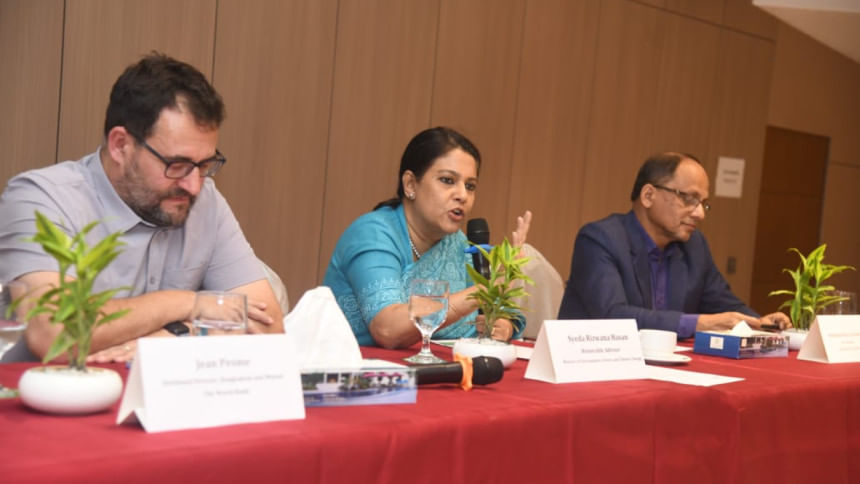03/05/2026

Rizwana stresses stronger enforcement, end to faulty environmental clearances
Staff Correspondent | Published: 2025-09-20 22:15:28

Environment Adviser Syeda Rizwana Hasan has underscored the need for stronger enforcement, institutional capacity, transparency and accountability in environmental regulation, along with an end to faulty clearances.
She made the call while speaking at a seminar titled “Strengthening Environmental Regulatory and Enforcement Capacity for a Sustainable Bangladesh” organised by the World Bank in Sreepur, Gazipur on Saturday.
She urged the officials of the Department of Environment (DoE) to act creatively and fearlessly saying, “Enforcement is not just about fines. It must include transparency, alternatives, and community empowerment.”
On enforcement priorities, she stressed the importance of targeting hotspots such as dyeing industries, cement factories and brick kilns, said a press release.
“We must focus on the worst polluters with proper budgeting and planning. Publish the names of polluters online. With information accessible, citizens will support enforcement against political pressure,” she added.
The Adviser came down heavily on the practice of granting site clearances in ecologically sensitive areas.
“Site clearances for waste dumping centers in flood flow zones are irresponsible and legally flawed. Even under political pressure, officials must send objection letters. If you cannot perform your duties, then be transferred — but do not compromise the environment,” she warned.
Rizwana also called for greater transparency in the clearance process, urging the DoE to publish Environmental Impact Assessment (EIA) reports of all red-category industries on its website and to include public objections in the decision-making process.
She further cautioned against rewarding polluters, citing the case of a ceramic factory that received a national award despite multiple fines and lacking clearance. “Polluters must be exposed, not celebrated,” she said.
The Adviser recommended digitisation of complaint handling, creation of a mobile app to track enforcement actions and stronger collaboration with local administrations to stop forest encroachment and illegal industrial activities.
Jean Pesme, division director for Bangladesh and Bhutan at the World Bank; Muhammad Munir Chowdhury, former director general of both the Anti-Corruption Commission and the National Museum of Science and Technology; Nafisa Arefin, deputy commissioner of Gazipur; AKM Rafiqul Islam, project director of the BEST project; and Bushra Nishat, environment specialist at World Bank Bangladesh, also spoke on the occasion.
Editor & Publisher : Md. Motiur Rahman
Pritam-Zaman Tower, Level 03, Suite No: 401/A, 37/2 Bir Protik Gazi Dastagir Road, Purana Palton, Dhaka-1000
Cell : (+88) 01706 666 716, (+88) 01711 145 898, Phone: +88 02-41051180-81